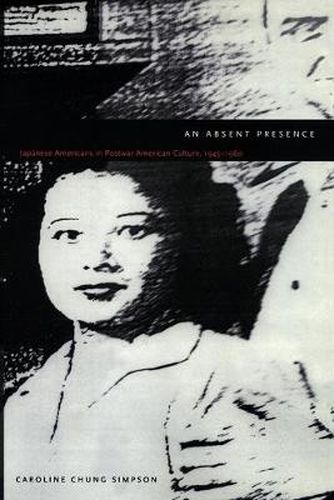Readings Newsletter
Become a Readings Member to make your shopping experience even easier.
Sign in or sign up for free!
You’re not far away from qualifying for FREE standard shipping within Australia
You’ve qualified for FREE standard shipping within Australia
The cart is loading…






The forced imprisonment of nearly 120,000 Japanese Americans during World War II was an unparalleled act in the history of the United States. Yet despite the fact that this internment has been the single most widely-reported and studied episode in the history of Asian Americans in the US, Caroline Chung Simpson argues that the shaping power this event has had in national and Cold War history has still not been recognized. Caroline Simpson looks at a number of provocative aspects of the United States government’s treatment of Japanese Americans to make the case for the unrecognized saliency this relationship has had in Cold War history. She examines, for instance, the practice of sending anthropologists to the internment camps - as community analysts - to study the Japanese and to develop theories of Japanese behaviour that would be useful after the war. She then looks at the trial of the alleged Tokyo Rose - Iva Toguri d'Aquino - who, despite the fact that all reliable sources conceded there was no Tokyo Rose , was convicted in an expensive and much ballyhooed trial that, Simpson argues, set the stage for the hysteria of McCarthyism. She revisits the Hiroshima Maidens project, an undertaking to bring young Japanese women disfigured by the atomic bombing to the United States for corrective surgery. Their treatments paid for by donations, the girls lived with American families in an experiment designed to celebrate the healing capacities of domestic life in the United States. Finally, she considers the experience of Japanese war brides of the 1950s, and the ways in which their treatment in the United States disguised racial hostility in a discourse of cultural pluralism.
$9.00 standard shipping within Australia
FREE standard shipping within Australia for orders over $100.00
Express & International shipping calculated at checkout
The forced imprisonment of nearly 120,000 Japanese Americans during World War II was an unparalleled act in the history of the United States. Yet despite the fact that this internment has been the single most widely-reported and studied episode in the history of Asian Americans in the US, Caroline Chung Simpson argues that the shaping power this event has had in national and Cold War history has still not been recognized. Caroline Simpson looks at a number of provocative aspects of the United States government’s treatment of Japanese Americans to make the case for the unrecognized saliency this relationship has had in Cold War history. She examines, for instance, the practice of sending anthropologists to the internment camps - as community analysts - to study the Japanese and to develop theories of Japanese behaviour that would be useful after the war. She then looks at the trial of the alleged Tokyo Rose - Iva Toguri d'Aquino - who, despite the fact that all reliable sources conceded there was no Tokyo Rose , was convicted in an expensive and much ballyhooed trial that, Simpson argues, set the stage for the hysteria of McCarthyism. She revisits the Hiroshima Maidens project, an undertaking to bring young Japanese women disfigured by the atomic bombing to the United States for corrective surgery. Their treatments paid for by donations, the girls lived with American families in an experiment designed to celebrate the healing capacities of domestic life in the United States. Finally, she considers the experience of Japanese war brides of the 1950s, and the ways in which their treatment in the United States disguised racial hostility in a discourse of cultural pluralism.